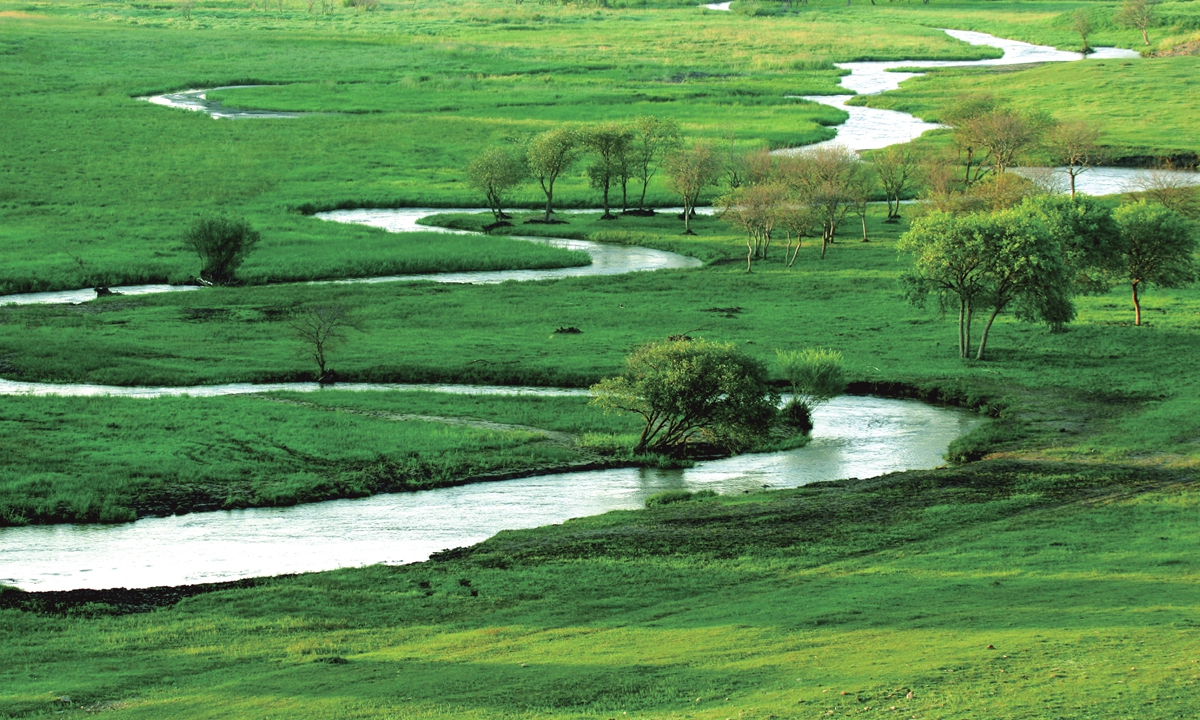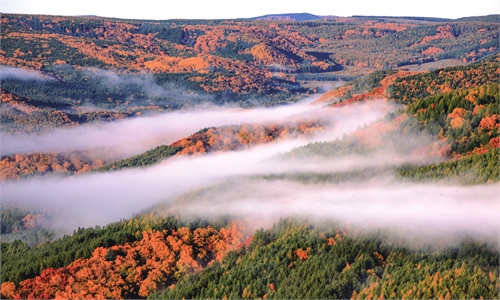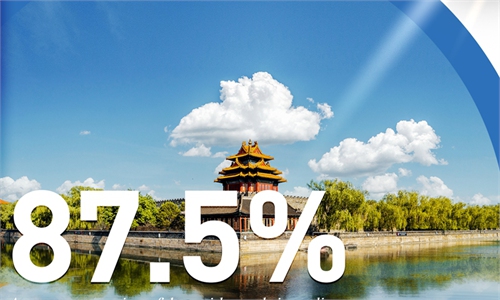Saihanba is vivid reflection of ‘lucid waters and lush mountains are invaluable assets’: expert

The beauty of Saihanba Photo: Courtesy of Saihanba Mechanized Forest Farm
Saihanba is a leading example of a "desert to oasis" miracle created by China. Today, the miracle continues as the forests in this region are supporting the land and the people by producing ecological and economic value.Improved regulations and policies combined with innovative scientific research outcomes concerning ecological conservation have contributed to green development in the new era, Li Junsheng, a deputy director of the research center for eco-environmental science at the Chinese Research Academy of Environmental Sciences in Beijing, told Global Times.
"Lucid waters and lush mountains are invaluable assets." The assertion was first proposed in 2005 when Xi Jinping was then Party chief of East China's Zhejiang Province. It has been referenced by Xi many times to attach importance to environment protection and green development.
Since the 18th National Congress of the Communist Party of China (CPC) in 2012, China has been prioritizing eco-environmental progress and pursuing a scientific approach to the realization of ecological civilization and green development. In its pursuit of harmony between mankind and nature, between the fragile eco-system and human activities, China endeavors to put in place a targeted framework that is adapted to local conditions, Li stated.
Meanwhile, China upholds the philosophy of harmonious coexistence between humanity and nature, and values the strength of public participation throughout the whole ecological restoration campaign. To consolidate this philosophy as a mainstream concept, China has strengthened ecological reservation at a national level, and continued to enhance governance capacity for ecological conservation, which means more scrutiny, funds and resources are being injected into these initiatives. Projects like the Saihanba afforestation initiative that transformed degraded land into lush forest is a great example, Li said.
Xi visited Saihanba in August 2021. Xi expressed his hope that staff would continue to work hard and take bold steps to explore deepening the reform of state-owned forest farms, promoting green development and increasing their carbon-sink capacity.
China has the world's largest area of man-made forests, a significant achievement, as noted by Xi. Saihanba, he said, has set an example in the global history of ecological progress.
China has intensified efforts in eco-environmental conservation and restoration. For example, a unified and innovative pattern and philosophy of ecological conservation has largely taken shape, with coordinated management of mountains, waters, forests, farmland, lakes and grassland, in combination with a series of projects for the integrated conservation and restoration of varied ecological systems.
The establishment of the first round of five national parks, the ecological protection and high-quality development of the Yellow River basin and the ten-year fishing ban covering the Yangtze River are also major projects designed to protect and restore ecosystems. These are vivid examples of China's dedication of putting eco-environment protection high on the country's agenda, Li stated. Bearing in mind the concept that lucid waters and green mountains are invaluable assets, Chinese authorities have continued to attach great importance to the concepts of pursing long-term targets.
According to official data, over the past two decades, China's newly added vegetation reached about one quarter of the global total increase, ranking first worldwide, Li told Global Times, "China is a promise-keeper and a doer, in terms of ecological protection and endeavors it has made to create a better inhabitant for both individuals or any creature on Earth."




